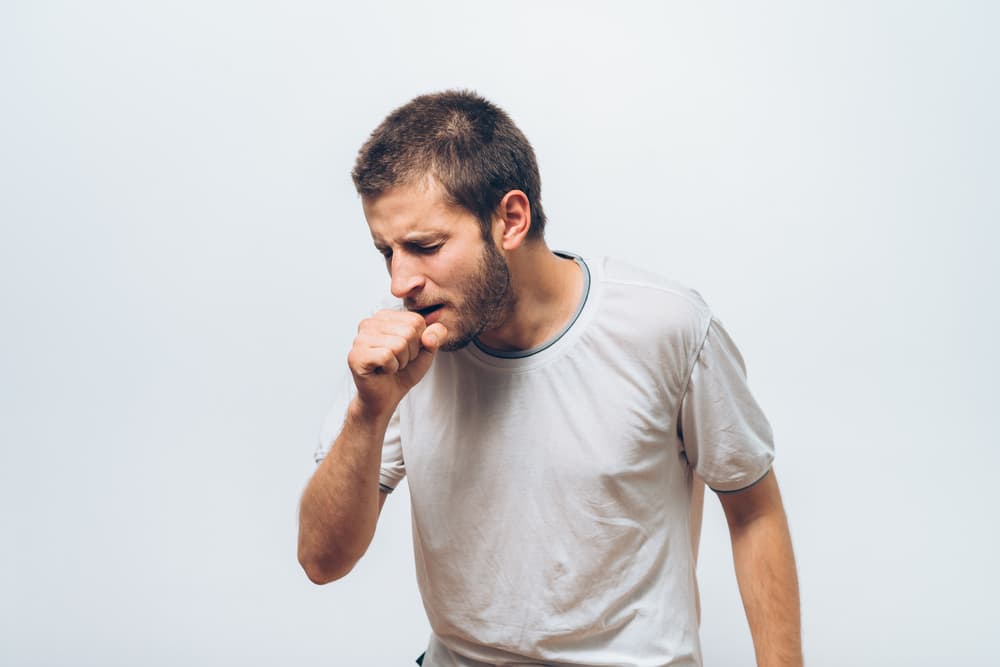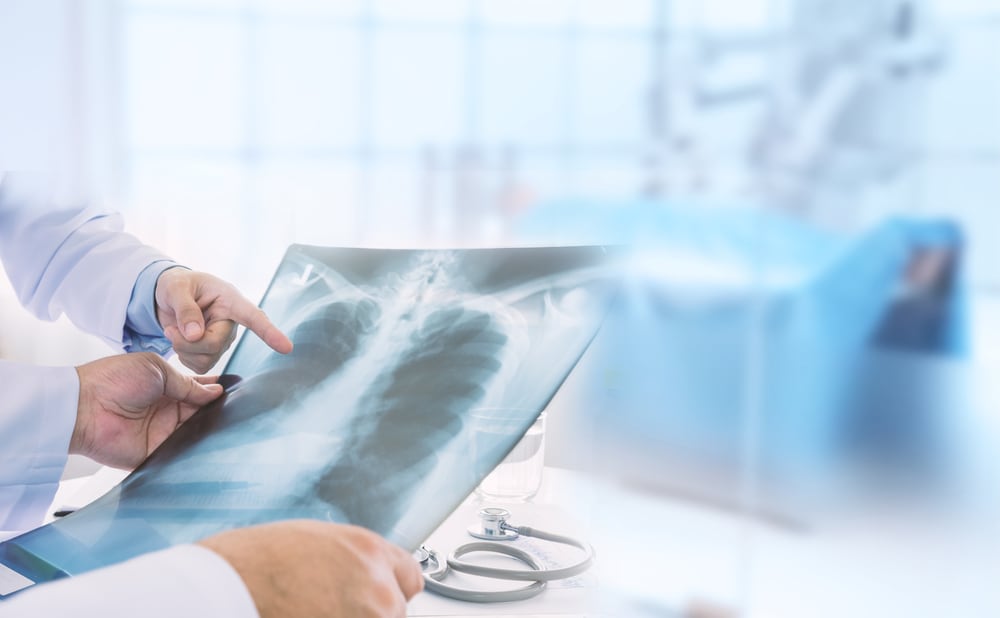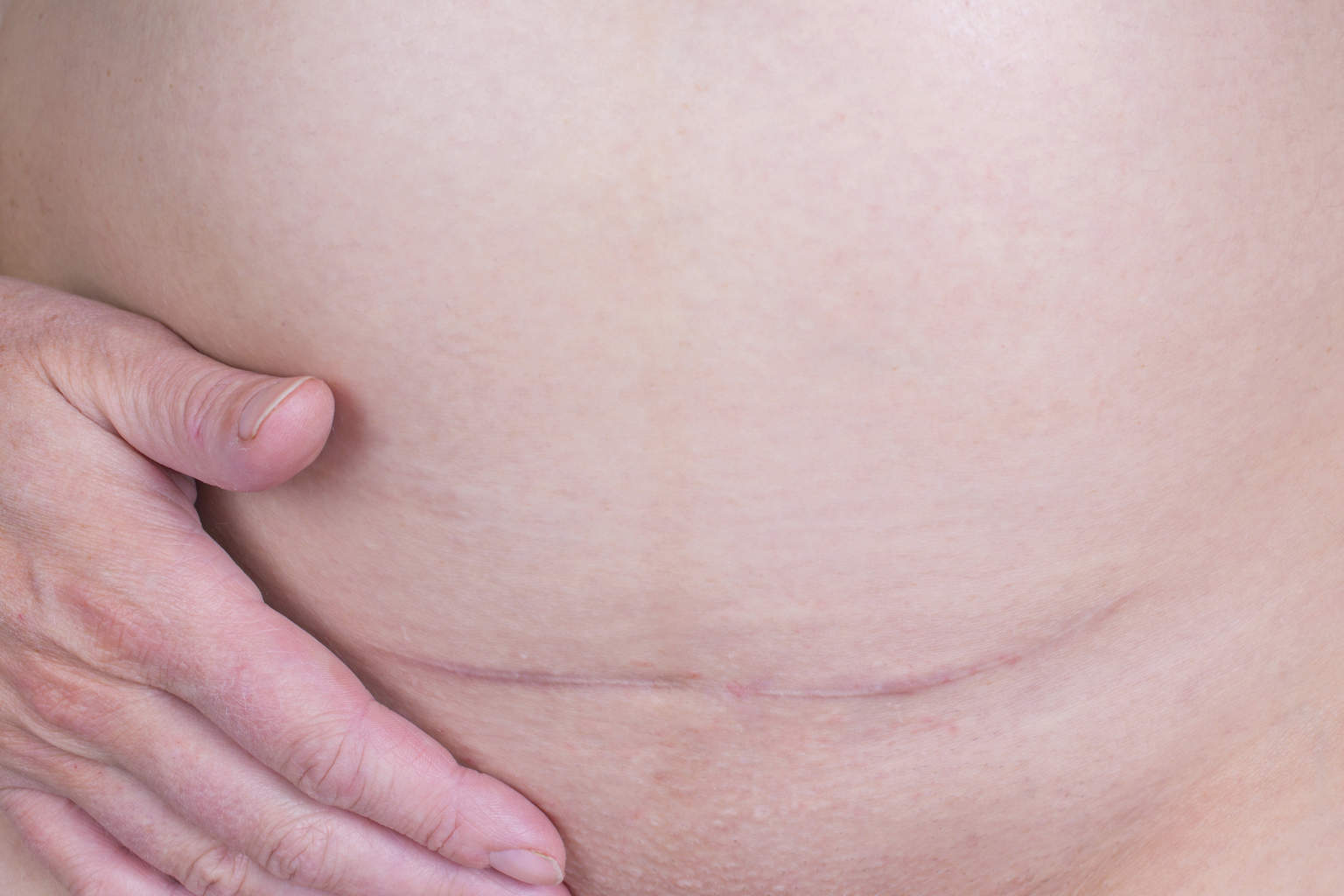Contents:
- Medical Video: Pneumonia
- What is pneumonia?
- What are the signs and symptoms of pneumonia?
- What are the causes of pneumonia?
- Types of pneumonia
- Type of pneumonia based on the cause
- Pneumonia based on the location of the infection
- Pneumonia based on the method of transmission
- How do doctors diagnose pneumonia?
- What pneumonia drugs are often used?
- Antibiotics
- Antiviral drug
- Cough medicine
- Painkillers
- Can pneumonia be cured only by taking medication?
- Various complications that can arise due to pneumonia
- What should I do when I have pneumonia?
- Can pneumonia be prevented? How to prevent it?
Medical Video: Pneumonia
Pneumonia is one of the diseases that attacks the lungs and is quite common in Indonesia. Actually what is pneumonia? Is this disease dangerous? What is the cause and how to treat it?
What is pneumonia?
Pneumonia is an infectious disease that attacks the lungs, causing the air sacs in the lungs to become inflamed and swollen. This health condition is often referred to as a wet lung, because the lungs can be filled with water or mucous fluid.
This condition of wet lungs can be experienced by anyone. But pneumonia in children can be very dangerous and cause death. In fact, the world health agency (WHO) said that pneumonia is the cause of 16% of under-five deaths in the world in 2015. Meanwhile, in Indonesia alone, reported from CNN, pneumonia in children causes 2-3 children who die every hour.
What are the signs and symptoms of pneumonia?
If you suffer from wet lungs, then the following symptoms and signs that generally occur are:
- Continuous coughing, accompanied by phlegm
- Fever
- Sweating
- Shivering
- Difficulty breathing
- Sore chest
- Appetite decreases
- The heartbeat feels fast
Meanwhile, symptoms that are quite rare but can still appear like:
- Headache
- Nervous and tired
- Nausea and vomiting
- Joint and muscle pain
- Cough accompanied by blood
Some of these symptoms are common and often occur in people who experience pneumonia and will last around 24-48 hours. However, this also depends on the condition of each individual. Even pneumonia in children can also cause different symptoms. The following are symptoms that will appear when pneumonia in children occurs:
- Children under the age of 5 years can experience rapid and irregular breathing.
- Babies will show symptoms of vomiting, weakness, no energy, and difficulty eating and drinking
What are the causes of pneumonia?
In fact, pneumonia is an infectious disease that can be caused by bacteria, fungi, and viruses. So, pneumonia is very easily transmitted through the air. Usually, transmission occurs when someone affected by this condition sneezes or coughs.
Viruses and bacteria that cause pneumonia can easily pass through the nose or mouth when sneezing and then infect other bodies. Because the bacteria and viruses can be ejected easily when someone breathes.
Your chances of getting pneumonia are greater, if you have certain risk factors. Factors that increase the risk of pneumonia are:
- Babies aged 0-2 years
- Elderly people entering the age of 65 years
- Have had a history of a previous stroke
- Tend to have a weak immune system, due to illness or use of certain drugs such as steroids.
- Have smoking habits. smoking can cause buildup of mucus and fluid in the lungs, causing wet lungs.
- Have a history of certain chronic diseases, such as asthma, diabetes, heart failure, cystic fibrosis, HIV and AIDS.
- Currently undergoing cancer treatment. Cancer treatments such as chemotherapy can reduce immunity, so that bacteria or viruses that cause these wet lungs can enter.
- Being hospitalized. If you are being treated in a hospital - even if you are not treated for a lung infection - then you are at high risk for pneumonia. Because the virus and bacteria of this disease are found quite a lot in the hospital area.
Types of pneumonia
Pneumonia can be grouped in several ways, namely based on the cause, where the disease is acquired, and how the wet lung is transmitted.
Type of pneumonia based on the cause
- Bacterial pneumonia. The bacteria that most often cause wet lung conditions occur, namely Streptococcus pneumoniae. While, Chlamydophlla pneumonia and Legionella pneumophila also bacteria that cause wet lungs.
- Viral pneumonia. Viruses are often the cause of pneumonia in children. Usually, disorders caused by this virus, are not too serious and only occur for a short time rather than health problems caused by bacteria.
- Mycoplasma pneumonia. Mycoplasma is an organism that is not derived from viruses or bacteria, but can cause the same disorder. Usually, this type of wet lung is experienced by children who are already teenagers and young adults.
- Mushroom pneumonia. This type of disease often attacks patients who experience chronic diseases or people who have a low immune system. The fungus that causes pneumonia usually comes from the ground.
Pneumonia based on the location of the infection
- Nosocomial pneumonia. If you experience this type of disorder, it means that you get the disease when in the hospital. This disease is considered more serious than other wet lung conditions, because usually infecting bacteria tend to be immune to antibiotics.
- Community pneumonia. That is, this infectious disease is obtained from the surrounding environment.
Pneumonia based on the method of transmission
- Aspiration pneumonia. This disease occurs when food, water, saliva, and even stomach acid enter the lung tract. This usually occurs in people who experience chewing disorders, have a nervous system disorder, or are under the influence of alcohol.
- Ventilator pneumonia. Pneumonia infection is acquired after using a ventilator.
How do doctors diagnose pneumonia?
In addition to seeing the symptoms that appear, these wet lung conditions can be found if you do some special health checks, such as:
- Chest X-ray. By using X-rays, the doctor can see the part of the lungs affected by pneumonia.
- Blood test. Blood tests are performed to determine the type of virus or bacteria that causes these wet lungs to occur.
- Sputum test. If you really experience wet lungs, then the virus or bacteria that causes this health disorder will be seen in phlegm.
- Check blood oxygen levels. This is done to find out how much oxygen is in your blood. Because the disease can cause oxygen to not enter the bloodstream.
If you show some severe symptoms, the doctor will usually ask you to do a further medical examination, such as:
- CT scan. If your pulmonary infectious disease does not heal, the doctor will ask you to do a CT scan so that you can see the condition of your lung at that time.
- Lung fluid culture. This examination requires the doctor to take fluid in the lungs and then examine the contents. This examination helps the doctor to determine the type of infection that occurs.
What pneumonia drugs are often used?
Pneumonia is a disease caused by infection, so the treatment is aimed at stopping the infection and preventing it from coming later. Treatment given will be adjusted to the type, severity of lung infection that occurs, the age of the patient, as well as the overall condition of the patient. The various treatment options for pneumonia are:
Antibiotics
Antibiotics will be given to people who have bacterial pneumonia. Usually, your medical team will first check what type of bacteria causes infection in the lung organs, then it will be adjusted to the type of antibiotic that will be given. When giving antibiotics cannot overcome the symptoms of an infection that is experienced, it is possible that the bacteria have been immune to the drug, so the doctor will replace it with a new type of drug.
Antiviral drug
This drug is used for patients who have an infection due to a virus. Viruses cannot be resisted with antibiotics, so if there are patients who have lung infections after the flu, they should be given antiviral drugs, such as oseltamivir (Tamiflu) or zanamivir (relenza).
Cough medicine
This drug is used to relieve cough symptoms which are usually experienced when lung infection attacks. Usually it will be given to make you more comfortable and so that you don't feel pain due to continuous coughing.
Painkillers
If you experience joint or muscle pain, headaches, or fever, your doctor will give painkillers to relieve your symptoms, such as ibuprofen and acetaminophen.
Do I need to be hospitalized? If the symptoms of the infection you are experiencing are mild and not too severe, then you will only be given the medicines mentioned earlier. You will be hospitalized because of the wet lungs you have if:
- More than 65 years old
- Having impaired kidney function
- Has a blood pressure of less than 90/60 mm Hg. In addition, diastolic pressure is less than 90 mmHg or has a systolic blood pressure of less than 60 mmHg.
- Breathing feels fast, breathing 30 times or more in one minute
- Body temperature below normal
- Heart rate is below 50 or above 100
If this happens to you, you should immediately go to the ED to get first aid. While pneumonia in children must be treated intensively in the hospital if:
- Less than 2 years
- Experience lethargy or decreased consciousness
- Breathless
- Dehydrated
- Having low oxygen levels in the blood
Can pneumonia be cured only by taking medication?
Generally the condition of this infection can be cured only with the consumption of drugs and the symptoms will disappear in a short time. After treatment is given, usually the body will recover again in just a few weeks.
But this depends on how severe the lung infection is. The more severe the symptoms are experienced, the longer the treatment time needed. In some cases, this lung infection can come back and can cause chronic respiratory problems.
This health disorder can also aggravate the disease that you have previously suffered, such as exacerbating the symptoms of heart disease.
Various complications that can arise due to pneumonia
If the infection is not treated properly, there will be complications or other health problems that arise. Complications that will arise due to pneumonia are:
- Bakterimia. This occurs when infectious bacteria enter the blood causing a decrease in blood pressure, inflammation in the blood, even in some cases resulting in organ failure.
- Injuries to the lung organs. Infection caused makes the lungs more injured.
- Pleural effusion. If the infection is not treated properly, the fluid will gather in the lining of the lung and cause the patient to breathe harder.
- Infection of one part of the heart. The bacteria can infect the heart too even though it was in the lung organs. This condition is called endocarditis. The spread of infection to the heart must be addressed immediately, because if not the patient will be at risk of experiencing heart failure.
What should I do when I have pneumonia?
Care at home must also be considered to prevent infection from invading the lungs again. Here are tips if you are undergoing a recovery period from lung infection at home:
- Enough rest. Do not return to normal activities first if the symptoms of your infection have not healed properly, especially the body temperature is still high. Even though you feel better, you should not be too tired and push yourself. This can make your immune system weak and the infection can return later.
- Drink enough water. Keeping your body well hydrated can help you reduce the amount of mucus or phlegm in the lungs.
- Take drugs according to the recommendations. You should consume the drug according to the recommendations given. If you are asked to take antibiotics, it is better to spend the drug. The reason is, if not spent, infectious bacteria can be immune to the drugs you consume.
Can pneumonia be prevented? How to prevent it?
In many cases, this infection can be prevented. Some precautions that can be taken so as not to get pneumonia are by giving vaccines and avoiding various risk factors from this disease.
- Vaccination. Vaccines are considered a powerful way to avoid lung infections. usually, there are vaccines that are specifically pneumonia and there are vaccines to ward off flu - because infections often occur after the flu. to find out which one is right for you to get, you should consult this with your doctor.
- Ensure that children also get vaccines. Pneumonia in children can also be prevented by means of vaccines. Usually vaccines given to children under the age of 2 years with children aged 2-5 years are different. Because pneumonia in children is quite dangerous, you should immediately give a vaccine to your child and discuss this with your pediatrician.
- Apply a clean lifestyle. Because pneumonia is an infectious disease, to reduce risk, you must maintain personal, family and environmental hygiene. It is often to wash hands with soap and clean water that flows so that bacteria and viruses do not stick to the surface of the skin.
- Stay away from cigarettes. This habit will only make your respiratory tract infected, including lung organs.
- Make a healthy lifestyle. This aims to maintain your overall health. In addition, by eating healthy foods and exercising regularly, you will have a strong immune system and be able to ward off various foreign substances into the body.














